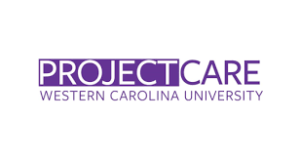All Western Carolina University students define home differently. Some might say home is where they were born or where they are currently living, however, for some students, their home goes by the name, Project C.A.R.E.

Project C.A.R.E will soon be celebrating 30 years of being on Western Carolina University’s campus. The program, which started out for increasing student retention of African American students, is now offered to all minority students on campus.
According to Jane Adams-Dunford, former Director of Multicultural Affairs, Project C.A.R.E. was created when African American student retention dropped significantly from 70.2% in 1986 to 54.7% in 1990. The program was created by Van Wilson and Jennifer Williams-Molock in 1990 and was originally intended to give students one-on-one peer mentoring to combat the decrease in student retention.
The organization still offers peer mentoring opportunities for incoming freshmen to learn more about campus, provide resources for any need students might have and guide them on a path of leadership and diversity.
Even though the organization has transformed in multiple ways over the past 30 years, it is still focusing on peer mentoring because they know it works to increase student retention and graduation, Adams-Dunford said.
The group began with only 10-20 students but soon rose to over 100 students. This year there are only 86 students and this is considered a small group, according to Lyndan Jones, Project C.A.R.E coordinator.
Many organizations get recognized and talked about frequently on campus “but when it comes to Project C.A.R.E., it’s always seen as this group of minority kids and it is just so much more than that,” Jones said. “So I think Black and Brown people have to be empowered on this campus, especially because it is a PWI (predominantly white institution). We have 90% white students and we need a place for these students to feel like, not only are they involved academically but that their culture is validated.”
A lot of the diverse and cultural representation that happens on campus is because students speak out about what they want to learn culturally on campus, Jones said.
“We have a lot of local people who are from Franklin and Bryson City that are at Western and they need that type of cultural exploration,” Jones said.
Project C.A.R.E. guides incoming freshmen to build relationships with students, faculty and staff before classes begin.
One of many events that are hosted by the program is their annual retreat. This retreat is an important moment for many students because they are given resources that students aren’t aware of until much later in their academic journey, said Adams-Dunford.
“We would invite our faculty and staff of color to lunch on that day so that students could understand who was on campus and who were additional resources,” said Adams-Dunford about the Project C.A.R.E. retreat. “A lot of times that doesn’t happen and we have students who would go forever and they don’t connect.”
To join Project C.A.R.E. as an incoming freshman, they must sign up before school starts. To become a mentor as a sophomore, you must go through an application process. However, all students are welcome to participate in events hosted by Project C.A.R.E.
The 30-year celebration is planned to take place in April but is subject to change due to COVID-19.
One of the most important factors that play into the success of Project C.A.R.E. is that many students are welcomed in a safe place where they can be vulnerable which leads to building a close community, Jones said.
“The most important part is that students have a place that is safe and a place that they can go to,” Jones said. “Project C.A.R.E. is really tight-knit, it’s literally like a family.”






